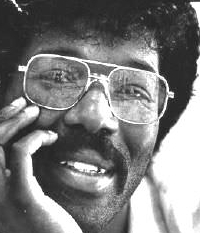UPDATE: New insights from clinical mental health counseling reveal that children from “emotionally healthy families” are increasingly seeking therapy for unexpected challenges. Jaclyn Williams, a graduate student and therapist based in Kansas, emphasizes the alarming rise in anxiety, guilt, and people-pleasing behaviors among these children, which many parents never anticipated.
In a revealing Instagram post, Williams shared her heartache over observing children burdened by pressures to maintain family peace and perfection. “Parents want the best for their children,” she told Newsweek, “but many didn’t experience that supportive environment themselves, leading to unintentional oversharing and unrealistic emotional expectations.” This has resulted in many young individuals struggling with emotional regulation and developing anxiety about making decisions.
Developing therapy trends indicate that even children from loving homes can benefit from professional help. Licensed clinical social worker Anat Joseph, practicing in New York and New Jersey, confirms this pattern, noting that therapy is not solely for those in crisis. “Kids from stable environments may still face social anxiety and internalized stress,” she said, highlighting that therapy offers a safe space for children to express feelings that may not be visible at home.
Parents often grapple with the distinction between validating emotions and teaching children how to regulate them. Williams illustrates this with a common scenario: “Imagine a toddler who can’t have the green ball they want. We must acknowledge their frustration instead of dismissing it.” However, validation must be coupled with guidance on emotional regulation. “Parents need to learn to regulate their own emotions, as children learn from them,” she added.
Conflict resolution is another critical area where families can falter. Williams encourages parents to model healthy conflict resolution, addressing issues calmly rather than avoiding them. “Discussing difficult topics when everyone is calm sets a positive example for children,” she advised. She recommends using play to prepare younger children for challenging situations, which can lead to greater resilience.
A dangerous trend emerges when parents unconsciously project their unresolved childhood issues onto their children. Signs include children frequently checking in to ensure their parent is okay or acting overly cautious. Joseph agrees that addressing these dynamics through therapy can foster a healthier emotional environment for both children and parents.
To support their children effectively, Williams stresses the importance of setting boundaries. “Boundaries can feel wrong and often induce guilt,” she explained. However, establishing them can relieve children from feeling responsible for adult emotions. “Instead of oversharing, parents can simply express that they are working through tough times,” she advised.
While conscious parenting aims to foster emotional health, Williams cautions that it can create blind spots. Children require love and validation, but they also need the room to make mistakes and navigate their emotions independently. Joseph encapsulates this sentiment, stating, “A supportive family is beneficial, but children still need neutral spaces to work through their feelings.”
Next Steps: As therapy sessions for these children continue to rise, parents are encouraged to educate themselves on emotional literacy and the importance of nurturing their children’s ability to process emotions. The implications of this study are profound, reshaping our understanding of emotional health in family dynamics.
As these revelations spread, Williams hopes to raise awareness about the complexities of modern parenting and the vital role of therapy in supporting children’s emotional journeys.








































































